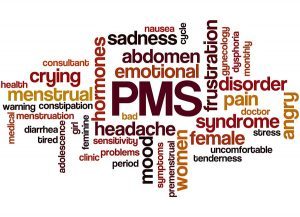- Home
- Editorial
- News
- Practice Guidelines
- Anesthesiology Guidelines
- Cancer Guidelines
- Cardiac Sciences Guidelines
- Critical Care Guidelines
- Dentistry Guidelines
- Dermatology Guidelines
- Diabetes and Endo Guidelines
- Diagnostics Guidelines
- ENT Guidelines
- Featured Practice Guidelines
- Gastroenterology Guidelines
- Geriatrics Guidelines
- Medicine Guidelines
- Nephrology Guidelines
- Neurosciences Guidelines
- Obs and Gynae Guidelines
- Ophthalmology Guidelines
- Orthopaedics Guidelines
- Paediatrics Guidelines
- Psychiatry Guidelines
- Pulmonology Guidelines
- Radiology Guidelines
- Surgery Guidelines
- Urology Guidelines
10 percent cases of Premenstrual Syndrome associated with Alcohol Intake : BMJ

Around 1 in 10 cases (11%) of premenstrual syndrome worldwide might be associated with the intake of alcohol, estimates María del Mar Fernández, researcher at Department of Preventive Medicine, University of Santiago de Compostela, Santiago de Compostela, Spain, and colleagues. They conducted a pooled analysis of data from the previous studies pertaining to association between drinking and PMS. The study was published in the journal BMJ Open.
PMS consists of a series of recurrent emotional and physical symptoms, including depression, tender breasts, mood swings, food craving, irritability and fatigue that occurs during the during the luteal phase of the menstrual cycle. Its severity varies from woman to woman and is related to intensity and type of symptoms.
Several previous studies have shown that PMS tends to be more severe among women who drink alcohol, but it’s not clear whether this is due to the alcohol itself or whether women reach for the bottle to cope with their symptoms.
To try and find out more, the researchers, analyzed research databases for relevant studies published up to May 2017, and found 19 from eight different countries, involving more than 47,000 participants.
Pooled analysis of the data from these 19 studies produced estimates showing that alcohol intake was associated with a “moderate” heightened risk of PMS of 45 percent, rising to 79 percent for heavy drinkers.
While the design of the included studies precludes the ability to establish cause, the relatively large number, and the consistency of the results, suggest that alcohol may be associated with an increase in the risk of PMS, they say.
Globally, the proportion of women who drink alcohol is thought to be around 30 percent, with around one in 20 (6%) of those heavy drinkers. But in Europe and America the equivalent figures are higher, at almost 60 percent and over 12.5 percent, respectively.
“Based on the figures above and on our results, we estimate that 11% of the PMS cases may be associated to alcohol intake worldwide and 21% in Europe,” write the researchers. “Furthermore, heavy drinking may be associated with 4% of the PMS cases in the world and over 9% in Europe.”
They speculate that if the association is causal in nature, “eliminating heavy drinking in women would then prevent one in every 12 cases in Europe.”
There are some plausible biological explanations for the association found, they explain. Alcohol might boost PMS risk by altering levels of the sex steroid hormones and gonadotropin during the menstrual cycle, and/or it might interfere with the production of key ‘mood’ chemicals in the brain, such as serotonin, they suggest.
For further information click on the link: http://dx.doi.org/10.1136/bmjopen-2017-019490

Disclaimer: This site is primarily intended for healthcare professionals. Any content/information on this website does not replace the advice of medical and/or health professionals and should not be construed as medical/diagnostic advice/endorsement or prescription. Use of this site is subject to our terms of use, privacy policy, advertisement policy. © 2020 Minerva Medical Treatment Pvt Ltd